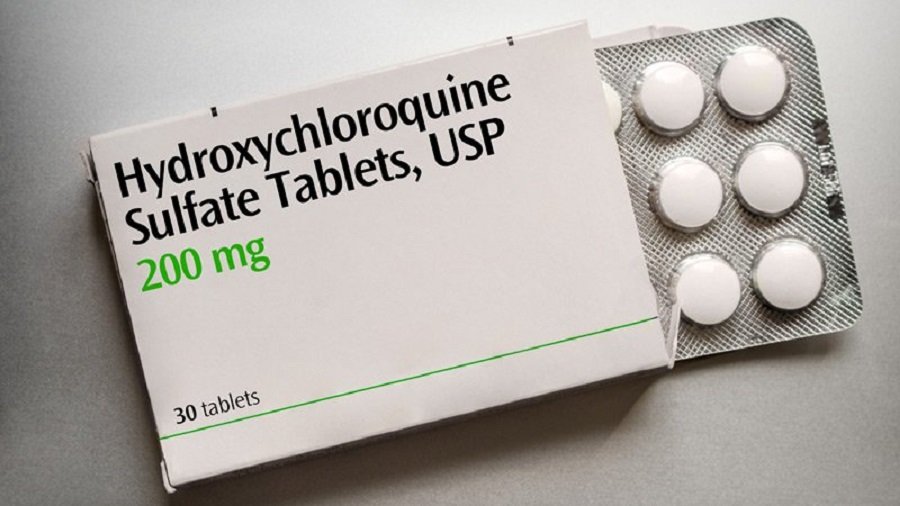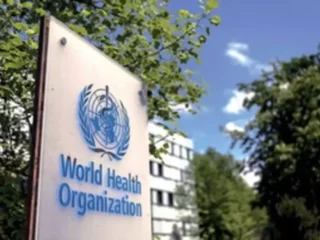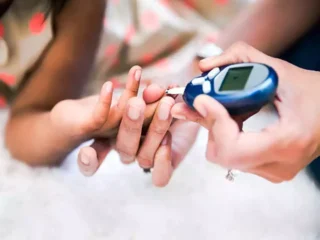Hydroxychloroquine was invented during World War II to provide an alternative with fewer side effects. Now, along with chloroquine, it is being explored in clinical trials around the world for their potential as a coronavirus treatment.
It is also used by patients with lupus and rheumatoid arthritis to control inflammation. Both drugs, chloroquine and hydroxychloroquine, are available as generics.
There is no clear evidence that the drugs work against the coronavirus, despite their use by hospitals and doctors in the United States and other countries since the outbreak began.
Reports from China suggested that chloroquine could inhibit SARS-CoV-2 in vitro, and showed apparent efficacy in treating COVID-19 in humans. A small non-randomised trial in France also found hydroxychloroquine to be a promising potential treatment.
The findings have prompted many, including US President Donald Trump, to tout hydroxychloroquine as a game-changer in the fight coronavirus.
“HYDROXYCHLOROQUINE & AZITHROMYCIN, taken together, have a real chance to be one of the biggest game changers in the history of medicine,” Donald Trump tweeted recently.
Since then, Trump has extolled the virtues of this cocktail, even as his medical advisers and other experts have urged caution.
India is the biggest manufacturer of hydroxychloroquine
The country has the capacity to quickly ramp up the output of hydroxychloroquine. Days after it added the drug to the list of more than two dozen APIs that cannot be exported while officials get a handle on how much will be needed for COVID-19 outbreak in the country, India on Tuesday agreed to lift the ban after Trump sought supplies for the US.
India manufactures 70 per cent of the world’s supply of hydroxychloroquine, according to Indian Pharmaceutical Alliance (IPA).
The country has a production capacity of 40 tonnes of hydroxychloroquine (HCQ) every month, implying 20 crore tablets of 200 mg each.
And since the drug is also used to auto-immune diseases like rheumatoid arthritis and lupus, manufacturers have good production capacities that can also be ramped up.
Ipca Laboratories, Zydus Cadila and Wallace Pharmaceuticals are top pharma companies manufacturing HCQ in India.
The drug is not manufactured in developed nations such as the US because of non-existent malaria. Hydroxychloroquine is very similar to chloroquine, one of the oldest and best-known anti-malarial drugs, but with lesser side-effects. It can be bought over the counter and fairly inexpensive.
But its purchase and use has been severely restricted as it was selectively used in the treatment of coronavirus because of its antiviral properties.
India gets the active pharmaceutical ingredient (API) that is used to manufacture HCQ from China and supplies so far have been steady. As much as 70 per cent of all the APIs needed by India to manufacture drugs come from China.
After Trump stated that the US could “retaliate” if India does not release stocks of the drug, Indian officials said exports of hydroxychloroquine and paracetamol will be allowed depending on availability of stock after meeting domestic requirements and existing orders.
Last month, the US Food and Drug Administration (FDA) partially lifted a three-year-old ‘import alert’ on Ipca’s two plants to import the medicine. Zydus Cadila has also received an order from the US.
On March 25, India had banned export of HCQ and added it to a list of more than two dozen APIs that can no longer be exported. India is the largest exporter of the drug.
India is likely to export the drug on a case-by-case basis after meeting all the domestic requirements.
The objective is to minimise speculative buying and hoarding in these trying times and ensure balance in the distribution for patients and segments who need them, he added.
According to Indian Drug Manufacturers’ Association (IDMA), India needs around 24 million tablets per year as on date for the three indications — malaria, lupus, and rheumatoid arthritis, it was being used”. India currently has an annual installed capacity of around 40 metric tonnes of active pharmaceutical ingredients (APIs) of hydroxychloroquine. With this capacity, India can make around 200 million tablets of 200 mg.
So this indicates that India currently has spare available capacity. The companies have already started ramping the capacity.” The major API makers for the drug in the country are Zydus, Ipca and Mangalam Drugs. The major formulation makers of hydroxychloroquine are Ipca, Zydus, Wallace Pharmaceuticals, and Cipla, Madan said. India exported hydroxychloroquine API in April-January 2019-20 period worth USD 1.22 billion. During the same period exports of formulations made from hydroxychloroquine were at USD 5.50 billion.
Indian Council of Medical Research (ICMR) recommended HCQ be used as a preventive medication for COVID-19 high-risk group. It has also recommended the use of the drug for those involved in the care of ‘suspected or confirmed cases of the coronavirus and for asymptomatic household contacts of laboratory-confirmed patients, apart from healthcare workers who are involved in the treatment of COVID-19’.








